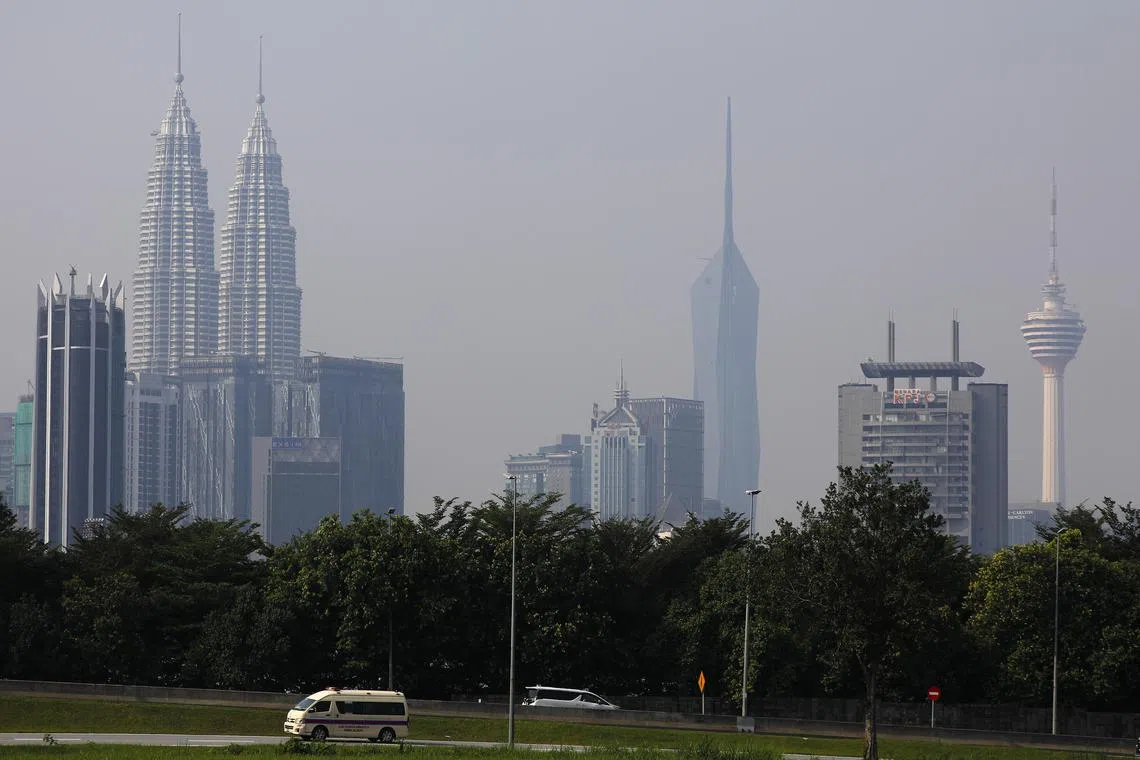Malaysia says unhealthy levels of haze caused by fires in Indonesia
Sign up now: Get insights on the biggest stories in Malaysia

Haze readings in Malaysia started to pick up gradually from 5am onwards.
PHOTO: EPA-EFE
Follow topic:
PETALING JAYA – Malaysia’s environment department said unhealthy Air Pollutant Index (API) readings in the country were linked to forest fires in Indonesia, as Kuala Lumpur, Putrajaya and Negeri Sembilan experienced haze on Friday.
The API in Kuala Lumpur recorded an average of 154.5, with Cheras being the worst affected at 155 and Batu Muda at 153.
Meanwhile, Selangor registered an average API of 127.4, with Petaling Jaya the hardest hit at 153 and Klang the least at 88.
The Meteorological Department considers unhealthy API levels to be between 101 and 200.
Putrajaya recorded an average API of 117; Taiping, Perak, 131; and Seberang Jaya, Penang, 110.
Haze readings started to pick up gradually from 5am onwards.
The Asean Specialised Meteorological Centre (ASMC) said the haze was caused by smoke plumes over Sumatra that were blown towards the north-west by prevailing winds.
“Under the prolonged dry weather, elevated hot spot activity and widespread hazy conditions are expected to persist over the fire-prone areas in southern and central Sumatra and southern Kalimantan.
“The prevailing winds are forecast to blow mainly from the south-east,” it said.
Malaysia’s environment department echoed the Singapore-based ASMC’s assessment, that forest fires in southern Sumatra and Kalimantan were causing transboundary haze to affect the west coast of the Malay Peninsula as well as the eastern state of Sarawak.
“Satellite imagery from the National Oceanic and Atmospheric Administration detected 52 hot spots in Sumatra, 264 hot spots in Kalimantan, and no hot spots within (Malaysia),” the department’s director-general Wan Abdul Latiff Wan Jaffar said in a statement.
He said dry weather conditions are expected to continue in central and southern Sumatra as well as southern Kalimantan, with winds blowing the thick haze towards the north-west.
However, rainfall in several parts of western Kalimantan may help reduce hot spots and hazy conditions, he added.
Indonesia and Malaysia have previously carried out cloud seeding, using chemicals to induce rain to battle the fires.
While Singapore is not expected to be affected by dense haze because of the current wind patterns, the National Environment Agency on Friday urged the public to check the air quality readings before participating in strenuous or outdoor activities.
At 6pm on Friday, the 24-hour Pollutant Standards Index hit 82 in the east of Singapore, falling within NEA’s “moderate” air quality range. THE STAR/ASIA NEWS NETWORK

